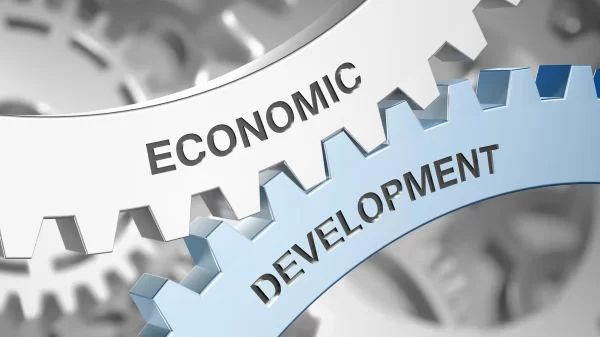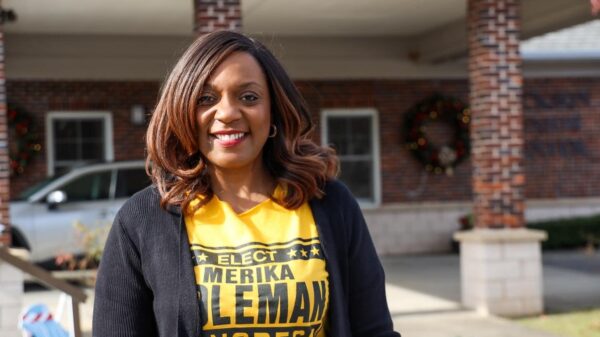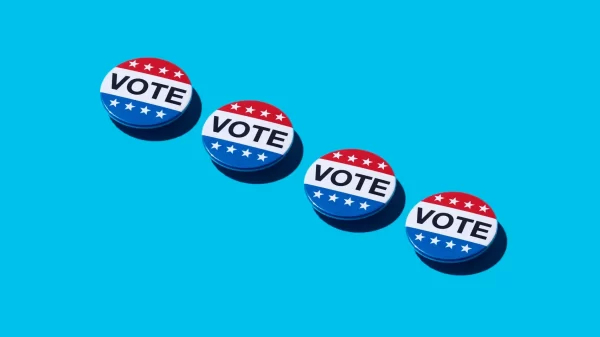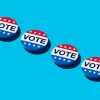Alabama is on the verge of losing big on gambling—again.
The state’s idiotic approach to the regulation and taxation gambling—or, to be more accurate, the absence of both—has been well documented over the years. As has the astronomical amount of money the state has lost by refusing to accept the reality that gaming is rampant around Alabama.
And now, the latest punch in the wallet is on the way: prediction market wagering.
If you haven’t heard of it yet, you will soon. It is a reality in all 50 states, including this one, and it has essentially legalized sports betting with the blessing of federal regulations.
It is growing in popularity and it is an extremely lucrative business, particularly in states like Alabama that have yet to legalize sports betting and other forms of gambling. In fact, the CEO of DraftKings—one of the most frequented betting sites in the world—told an audience at the Bank of America Gaming & Lodging Conference this week that prediction markets wagering was set to expand rapidly in gaming-less states.
FanDuel, another top wagering site, recently formed a partnership with the Chicago Mercantile Exchange, indicating its move into the prediction market business, while Underdog has been there for quite some time.
To put things in the simplest terms, prediction markets allow gamblers—or investors—to gamble on various predictions, including the outcomes of games and various other entertainment and pop culture events, by purchasing “contracts” for a specific prediction.
For example, in Sunday night’s heavily viewed—and heavily wagered—NFL matchup between the Baltimore Ravens and Buffalo Bills, prediction markets sites, such as Kalshi, offered the chance to purchase a “contract” based on the prediction that one team was more heavily favored to win. Baltimore was a slight favorite in the game, meaning a $100 contract for Baltimore to be the winner would pay less than the same contract on Buffalo.
In this weekend’s matchup between Auburn and South Alabama, the Tigers are a heavy favorite on Kalshi, where they have a 94-percent chance of winning. That means a $100 bet on Auburn could net you just $103 if AU wins. On the flip side, should USA pull off an unimaginable upset, that same $100 wager would get you $1,875.
Why, yes, this is just straight up sports gambling under a different name. But here’s the thing: the process and function is just different enough that it does fall under the federal rules governing financial markets.
It’s kind of like all those years in which a bunch of goobers from our attorney general’s office kept arguing that electronic bingo is the same as traditional slot machines, and thus illegal in Alabama. In the meantime, the federal government recognized key differences between the games and granted Native American casinos the right to operate them. That’s because the way things work matters—even if the experience of play is roughly the same.
The state is now set up for a similar outcome on sports wagering—an outcome in which we get all of the sports wagering and very little of the tax revenue.
The state already allows daily sports wagering. That means most of the player prop bets (i.e. Josh Allen over/under 3 TDs) are already legal here and available on several betting sites. Now, with prediction markets wagering, a company like FanDuel, with its partnership with the Chicago Mercantile Exchange, could conceivably offer through a single app the ability to wager on most player props and also wager on the outcomes of games. Even without the state legalizing sports betting.
Gambling regulators in seven states have tried to stop Kalshi and other prediction markets companies from operating. Those who have tried in court—notably in New Jersey and Nevada—have failed.
That’s because these prediction markets—even when they’re predicting the outcome of various games—meet the legal definition of a financial market. And it might also have something to do with influence from the White House, given that the president’s son, Donald Trump Jr., is a “strategic advisor” for Kalshi. Unsurprisingly, the Trump administration has signaled its support for prediction markets and the companies that facilitate them.
All of this is devastating for Alabama.
Not only is the state staring at losing out on billions of sports wagering tax dollars, it’s also looking squarely at a brand new, deep-pocketed player in this gambling fight.
Prediction markets wagering is a business worth billions upon billions of dollars, especially in states that haven’t legalized traditional sports wagering (or any other kind of wagering). Those dollars will undoubtedly be protected by these companies through campaign donations, which will prop up any state legislator who opposes comprehensive gaming legislation.
All of this is more karma for Alabama voters.
Year after year, those voters have failed to punish any lawmakers for not taking the practical, logical approach and passing proper gambling legislation. And year after year, those lawmakers have sucked up money from out-of-state interests and other groups and put their personal ambitions above what is best for the state. So, here we are.
We are overrun with unregulated, back-of-the-gas station bingo casinos, which don’t pay state gaming taxes. We are overrun with illegal and offshore sports wagering—to the tune of more than $2 billion wagered in 2023 alone—all of it untaxed by the state. And now, our legislative ineptitude has left us staring at full blown, legal sports wagering spreading unregulated to every smart phone walking the streets—and none of that will be taxed either.
All of which means the best bet you could ever make is that Alabama lawmakers will consistently fail to make the right decisions when it comes to gambling.




















































